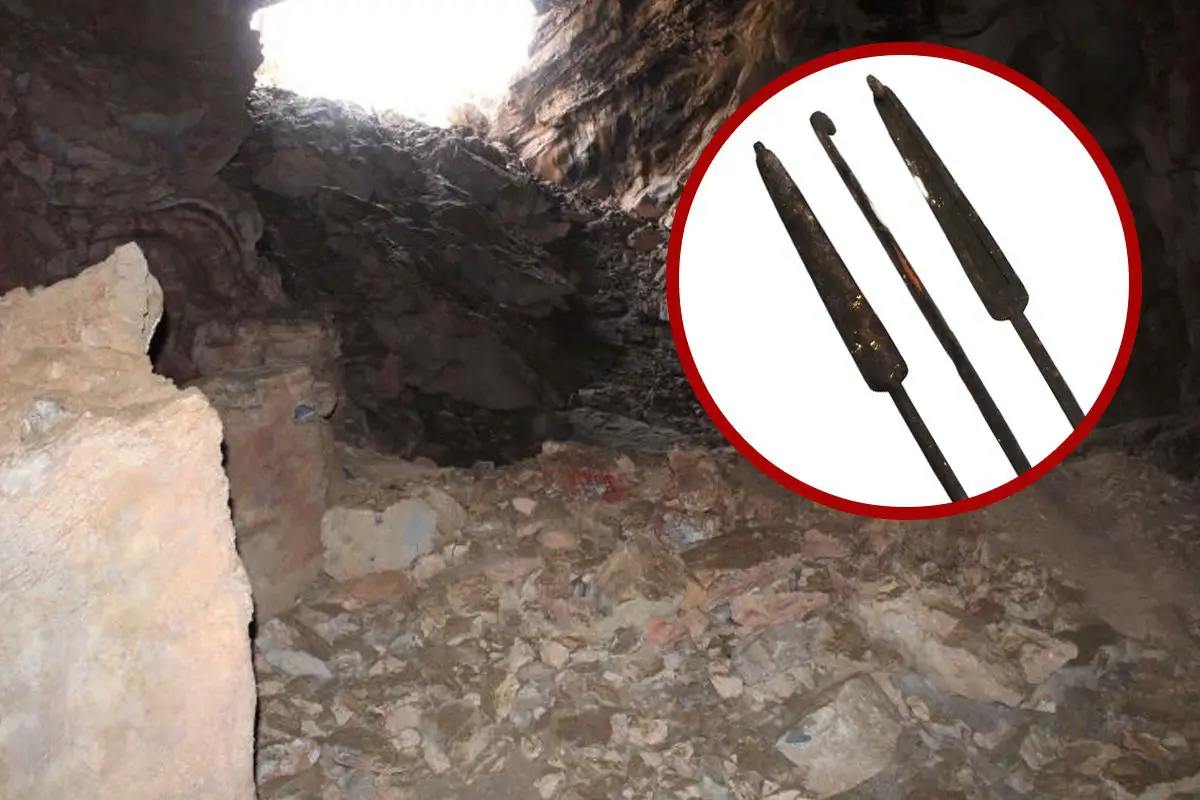Archaeologists from the National Institute of Anthropology and History (INAH) have recovered ancient sets of hunting tools from the Cueva del Tesoro.
The Cueva del Tesoro, known as the “Treasure Cave”, is a small gallery cave in Cadereyta de Montes, Querétaro, Mexico.
According to a press announcement by INAH, archaeologists have recently recovered ancient hunting tools deposited in a small cavity after being notified by members of the Association of Cavers of Querétaro of the discovery.
The tools include an atlatl, wooden darts, and modified logs likely used as multi-functional tools, which preliminary dating has placed to the 1st century AD. The atlatl is a spear-throwing lever that significantly increases the range and velocity of thrown projectiles, making it possible to target prey at a greater distance than with bare-handed throwing.
An inspection of the cave system found no other archaeological elements that could provide an interpretation of the discovery, however, the results of a sample analysis will be announced by the team on the 27th January 2024.
According to the researchers, the tools belonged to hunter-gatherer societies that settled the region as early as 7,000 BC. At the time, numerous nomadic groups relocated to the semi-desert regions of Querétaro and Guanajuato, as indicated by the abundant rock art and the unearthing of prehistoric artifacts in the neighboring cave systems.
Over time, some hunter-gatherer groups transitioned to more settled agricultural lifestyles, while others continued their traditional practices until more recent centuries.
Header Image Credit : INAH





